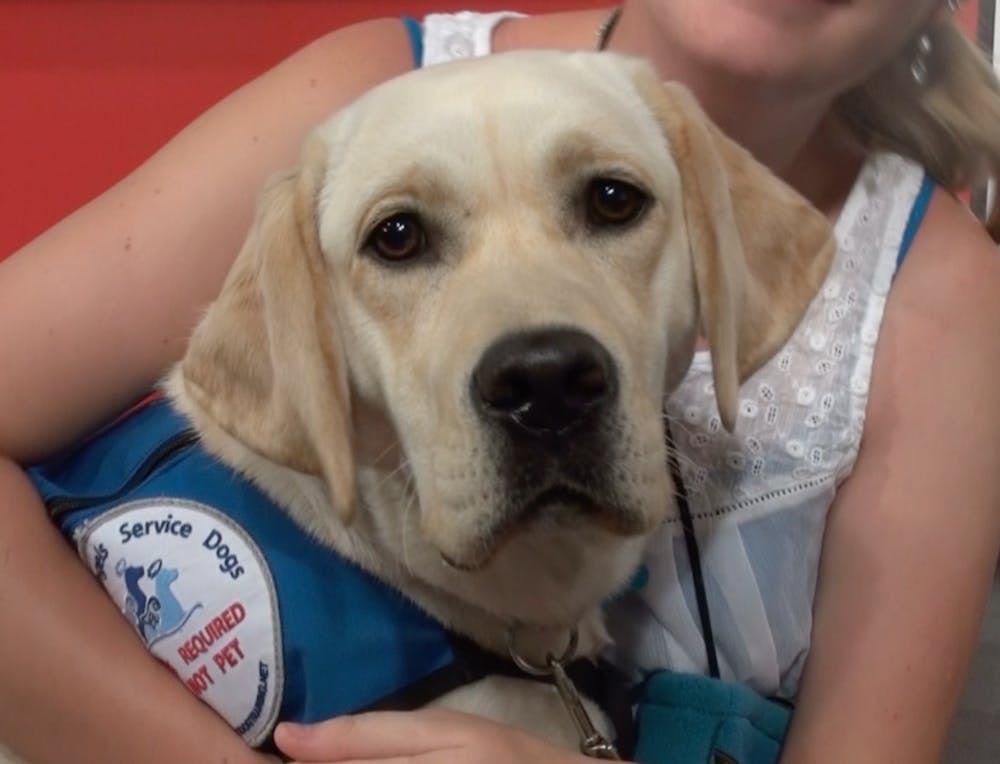Senior Emma Hughes made a new friend for her last year here at Elon. Candy, Hughes' yellow lab service dog travels around campus and to class everyday, right by her side.
"She is trained to do several things, one of which is to bring me objects which is one of the minor things but the two things she is trained to do is alert and depression therapy," Hughes said. "If I need her to alert which means she paws at my legs or she does de-pressure therapy which means she jumps on my lap and they both help with anxiety and depression. If I'm feeling anxious or depressed she'll just jump on my lap and stay there for a while and just cuddle."
Dr. Leah Totten, professor for the School of Communications brings her service dog, Coco Beans, to her Tuesday and Thursday classes. Not only is Coco reassuring for Totten's public speaking students, but she is also there to protect Totten after she had a stroke last spring.
"She has three jobs; the first is to alert me if something is going wrong with my body, or if there is a danger near by like someone who is too close to me and if I were to back up I may fall over if i hit them," Totten said. "She is also for stress reduction and management."
While most students really wish they could have a pet on campus, some request an emotional support dog for all the wrong reasons. Hughes defined a service dog as an animal that is trained in a specific or multiple task to help their handler with a disability.
Her biggest piece of advice is that requesting an emotional support dog is harmful for people who actually need a service pet.
To all Elon students, while it may be tempting to pet the dogs you see walking around campus. If the dog is wearing his or her service vest don't pet them because they are doing a very important job.


